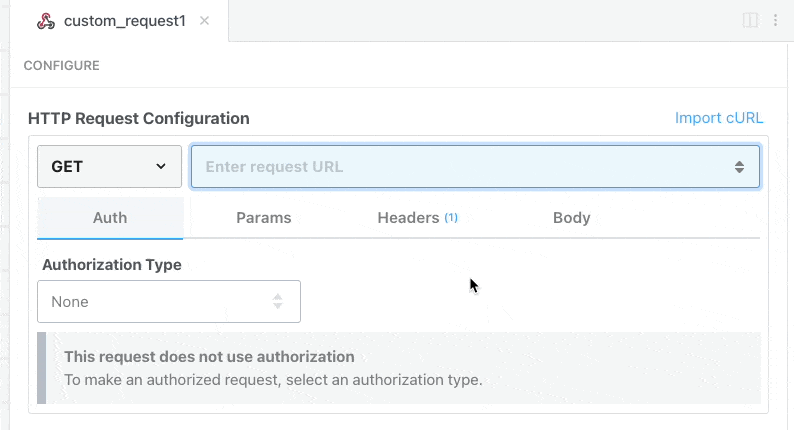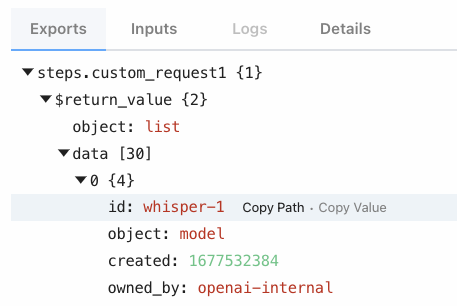What do you want to automate
with Beebole and HTTP / Webhook?
Prompt, edit and deploy AI agents that connect to Beebole, HTTP / Webhook and 3,000+ other apps in seconds.
Trusted by 1,000,000+ developers from startups to Fortune 500 companies
Popular Ways to Connect Beebole with HTTP / Webhook#
Popular Beebole and HTTP / Webhook Triggers#
Get a URL and emit the full HTTP event on every request (including headers and query parameters). You can also configure the HTTP response code, body, and more.
Get a URL and emit the HTTP body as an event on every request
Emit new event when the content of the URL changes.
Popular Beebole and HTTP / Webhook Actions#
List all companies in your Beebole account. See the documentation
Get a list of employees without any time entry for a given period of time
Send an HTTP request using any method and URL. Optionally configure query string parameters, headers, and basic auth.
Send an HTTP GET request to any URL. Optionally configure query string parameters, headers and basic auth.
Overview of Beebole#
The Beebole API provides a way to automate time tracking, manage projects, and handle employee data efficiently. With Pipedream, you can harness this functionality to create custom workflows that trigger on specific events, manipulate and analyze time tracking data, and integrate with other services for enhanced automation. For instance, you could sync time entries with project management tools, create reports for payroll, or set up alerts based on your team's time tracking patterns.
Connect Beebole#
import { axios } from "@pipedream/platform"
export default defineComponent({
props: {
beebole_app: {
type: "app",
app: "beebole_app",
}
},
async run({steps, $}) {
const data = {
"service": `company.list`,
}
return await axios($, {
method: "post",
url: `https://beebole-apps.com/api/v2`,
auth: {
username: `${this.beebole_app.$auth.api_token}`,
password: `x`,
},
data,
})
},
})
Overview of HTTP / Webhook#
Build, test, and send HTTP requests without code using your Pipedream workflows. The HTTP / Webhook action is a tool to build HTTP requests with a Postman-like graphical interface.

Point and click HTTP requests
Define the target URL, HTTP verb, headers, query parameters, and payload body without writing custom code.

Focus on integrating, not authenticating
This action can also use your connected accounts with third-party APIs. Selecting an integrated app will automatically update the request’s headers to authenticate with the app properly, and even inject your token dynamically.

Pipedream integrates with thousands of APIs, but if you can’t find a Pipedream integration simply use Environment Variables in your request headers to authenticate with.
Compatible with no code actions or Node.js and Python
The HTTP/Webhook action exports HTTP response data for use in subsequent workflow steps, enabling easy data transformation, further API calls, database storage, and more.
Response data is available for both coded (Node.js, Python) and no-code steps within your workflow.

Connect HTTP / Webhook#
// To use any npm package on Pipedream, just import it
import axios from "axios"
export default defineComponent({
async run({ steps, $ }) {
const { data } = await axios({
method: "GET",
url: "https://pokeapi.co/api/v2/pokemon/charizard",
})
return data.species
},
})
Community Posts#

